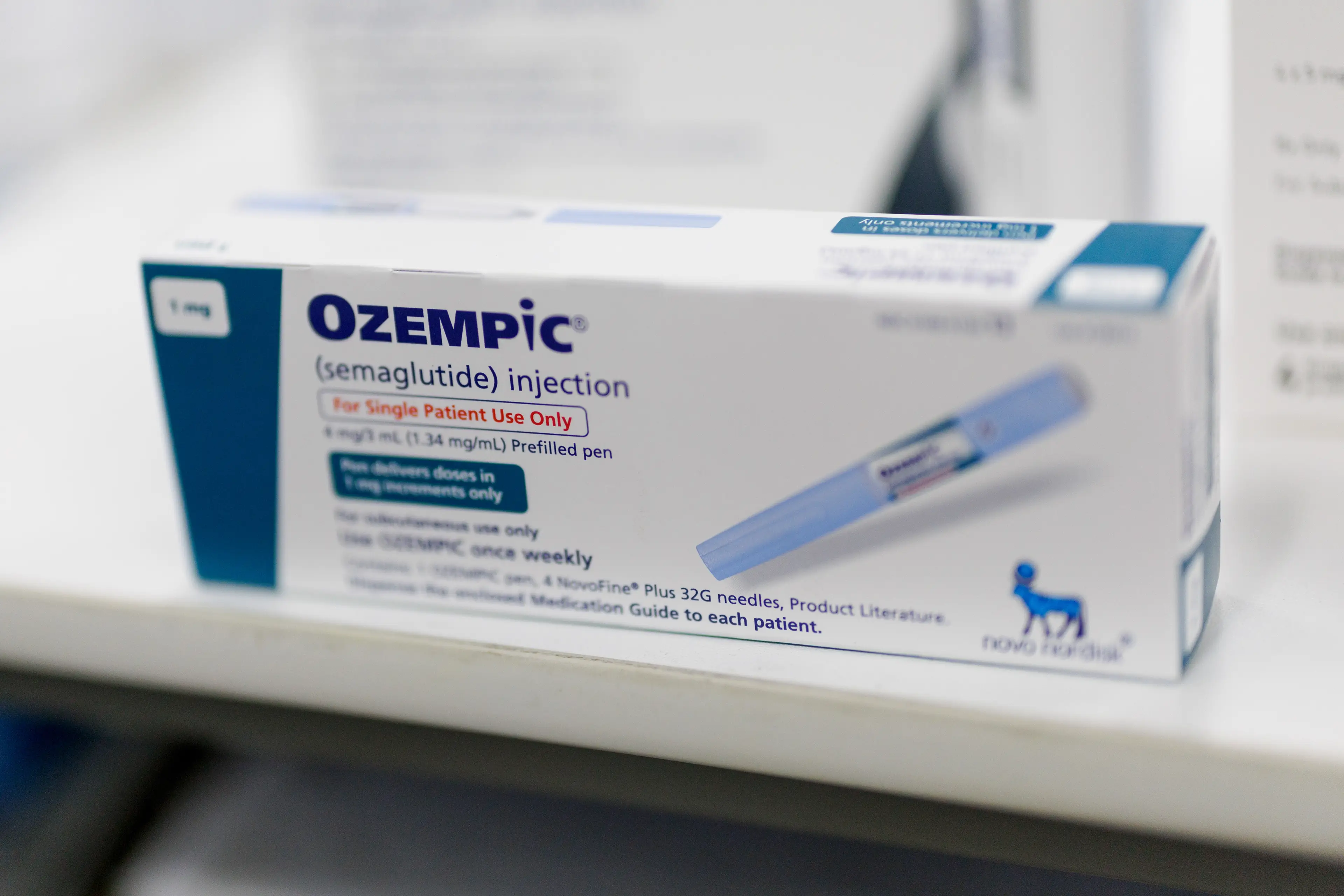
Ozempic has more than proved its abilities to help people lose large sums of weight in short periods of time, despite being manufactured as a treatment for diabetes.
But while the GLP-1 medication has been life changing for many people struggling with diabetes and obesity, new research has revealed a concerning possible side effect.
Research by the University of Utah Health has suggested that in addition to helping its users lose fat, Ozempic could be having a significant effect on lean body mass too.
You may have heard the advice from doctors and nutritionists, who advise GLP-1 medication users to maintain a high protein diet in a bid to avoid losing too much muscle.
Advert
While that advice remains as important as ever, this most recent research suggests all may not be as it appears.

The study, which looked at the effects of Ozempic on mice, found that muscle mass didn't actually decrease as much as was expected. However, the actual strength of the muscles did decline rather significantly.
"If we want to really help the individuals who may be losing muscle mass, then we need to know that they're actually losing muscle mass," says Katsu Funai, PhD, associate professor of nutrition and integrative physiology in the University of Utah College of Health and the senior author on the study.
"We have data in mice that suggest that things are not as straightforward as they might seem."
The team discovered that weight loss induced by taking Ozempic typically reduced lean body mass - which refers to any body weight that isn't fat - by around 10 percent, but the majority of this came from tissues such as the liver.
However, more research is needed to determine whether the changes to organ sizes are the same in humans and if this presents any health complications.

Ran Hee Choi, PhD, research instructor in nutrition and integrative physiology at U of U Health, explained: "Loss of mass in metabolically active organs, such as the liver, is expected as part of healthy weight loss."
Meanwhile, Takuya Karasawa, PhD, postdoctoral researcher in the U of U Molecular Medicine Programme, added that it's unlikely that lean muscle mass has any 'serious adverse effect' explaining that weight loss can affect the liver's size without affecting its function.
The most concerning outcome, however, was when researchers tested the mice's muscle force, and found that strength continuously decreased as the mice lost weight, even when the muscle size remained roughly the same.
Again, more research is needed to find out if this is the same in humans, however, it does raise possible concerns for anyone over the age of 60 taking the medication, due to the increased risk of muscle loss and reduced mobility.

Funai said: "The loss of physical function is a strong predictor of not just quality of life but longevity."
The researchers are now calling for clinical trials to see if the results are mirrored in human trials.
"There are many additional weight loss drugs that are in clinical trials and coming out in the next three to five years. But with all those clinical trials, if they're interested in measuring lean mass loss, they need to consider physical function," Funai concluded.
"Our findings are really interesting, but this is a preclinical model. We need these data in people."
I have included a statement you can use below. Please do make it clear to your readers that Ozempic is a diabetes drug and not a weight loss drug and shouldn’t be used as such, I have included the indications for Ozempic and Wegovy below to make it easier for you to make that distinction in your article.
A Novo Nordisk spokesperson told LADbible: "In clinical trials for Wegovy or Ozempic we did not specifically study the medicine’s impact on muscle mass. In a sub-study of 140 patients with a BMI of 40 or less conducted as part of the STEP 1 trial, dual-energy x-ray absorptiometry (DEXA) analyses suggested that treatment with Wegovy was accompanied by reductions in both fat mass and lean body mass, with a greater reduction in fat mass than lean body mass.
"We recommend that any patients experiencing side effects while taking Wegovy® or Ozempic® contact their healthcare provider."
